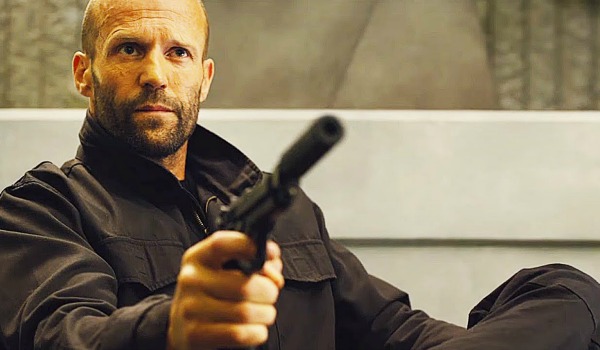There's a stint in the middle of Mechanic: Resurrection where you finally start to understand why two writers (Philip Shelby, Tony Mosher), four producers (John Thompson, Robert Earl, David Winkler, William Chartoff), and a director (Dennis Gansel) have worked tirelessly to make a sequel to a film that no one really wanted. It doesn't last that long, though.
After Arthur Bishop (Jason Statham)'s new girlfriend Gina (Jessica Alba), who he has literally known for less than three days, is kidnapped, the former hitman is forced to come out of retirement to complete three impossible assassinations, which he also must make look like accidents. Otherwise she will be killed by villain Riah Crain (Sam Hazeldine).
Watching Statham meticulously plan out and then get inside Thailand's impenetrable prison, murder its most famous inmate, and then quickly escape, before he then has to do the same in Sydney, Australia, to a multi-millionaire in a luxurious, but once again heavily guarded, penthouse high rise in the middle of the city, is just plain old fun. These scenes are well constructed, paced, and built in an entertaining and, ultimately, satisfying manner that just about make the previous, blatant inadequacies of Mechanic: Resurrection forgivable.
It also helps that Jason Statham is able to sell each of these sequences so well. In fact, watching Statham in Mechanic: Resurrection made me think of a sequence in Peter Bogdanovich's documentary on John Ford, Directed By John Ford. In this, John Wayne recalls some sterling advice that the legendary director gave to the young actor, as he informed him, "Duke, you're gonna get a lot of scenes in your life, they're gonna seem corny to you. Play them, play them to the hilt -- you'll get by with it."
That pretty much sums up why Jason Statham has been a mainstay in the action genre for the last 14 years, as there's always a palpable intensity and professionalism to his performances that means he's able to make even the most outlandish and outrageous action sequence just about believable. Because of his physique and agility you believe that he's fearless and could easily eliminate anyone that he has his eye on, while because of his cockney accent and innate calmness he's able to convince you that he's as smart as a whip and able to improvise and think on his feet, too.
The problem comes when he opens his mouth. Especially considering the diabolical dialogue, plot, relationships and conflicts that Jason Statham has to sell in Mechanic: Resurrection. Despite Mechanic: Resurrection's deviation into entertainment when we get to see Arthur Bishop working wonders, it's unfortunately bookmarked by lackluster opening and closing acts that soften the impact of your enjoyment during this time.
First of all, it's tedious and painful to see Jessica Alba and Jason Statham's relationship grow, as the pair fail to produce one spark of romance between the pair of them. They are even tied together at one point to forcibly create camaraderie. The pair are not helped by sycophantic, hackneyed direction and writing during this time, which includes overly dramatic, tawdry back-stories, swells of emotional music and even a sex scene montage that feels like it's been ripped straight from The Room. It's a welcome relief when Jessica Alba is actually kidnapped.
Then, after Mechanic: Resurrection has redeemed itself, it sadly resorts to loud, common-place, ill-planned out action scene for its finale, which even the random appearance of Tommy Lee Jones as an arms dealer dressed like a biker/hippy hybrid from the future can't salvage. Well, he does a little. But it's like running into your granddad on a sinking ship; you know you're about to go through something bad, you're just glad TLJ is there to hold your hand through it all.
Since the original only grossed $62 million from a $40 million budget after average reviews, it's hard to know why Mechanic: Resurrection was green-lit in the first place. Sure, it's not a complete waste of your time. But after sitting through it for 99 minutes it's so obviously average and only ever so slightly enjoyable that I'm still, and probably always will be, none the wiser for its creation.












